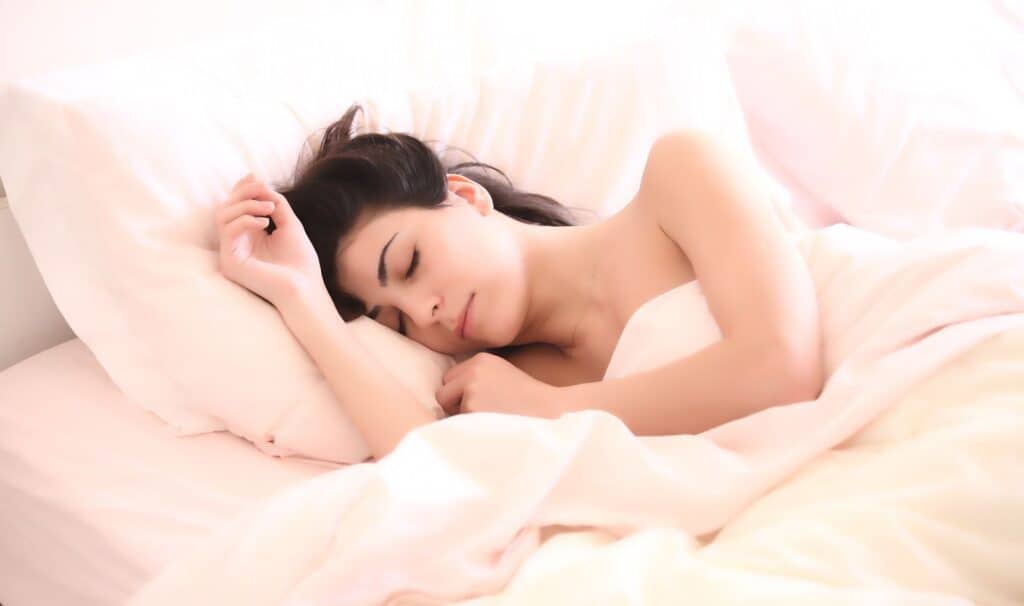
Normal sleep versus insomnia
According to research done at the Stanford Center for Sleep Sciences and Medicine the vast many people do not get the sleep they require. In our hectic world many individuals are developing a sleep deficit. The average hours of healthy sleep per night are between 7 and 9 hours. Most people feel their best when they get 8 hours of sleep. Even though many people claim to feel well on 6 or less hours of sleep, the reality is that only about one per one thousand people actually get the sleep they need on 6 or less hours of sleep.
Over time being short on sleep causes cognitive and physiological deficits, including memory impairments, a reduced ability to make decisions and serious attention issues. Not getting enough sleep increases the risk of car accidents, impacts work performance, and affects one’s mood and relationships. Lack of sleep impact the body as well. A lack of sleep taxes the immune system is taxed, and increases the risk of high blood pressure, heart disease, strokes, diabetes, obesity.
Good sleep hygiene can promote sound sleep.
Tips for better sleep
- Create a sleep schedule by going to bed and rising at the same time each day (including the weekend).
- Take care to have a bedroom that is quiet, dark, relaxing, and at a comfortable temperature.
- Assure your bed and is very comfortable and that it is only used for sleep and intimacy. (Leave your gadgets and TV in the common living space.)
- Agree on a time during the day to discuss and resolve issues.
- Avoid eating heavy meals too late in the day.
- Nap carefully. Napping in the afternoon for more than 60 minutes can disrupt night-time sleep.
- Exercise as often as possible, but not too close to bedtime.
- Avoid drinking alcohol, as it interferes with getting good quality sleep.
- If you consume caffeinated drinks (tea, coffee, energy drinks etc.) keep in mind that caffeine can remain in your body up to 14 h.
- Use the last hour of your waking time relaxing in a dimly lit space.
- Don’t use alcoholic drinks as a “sleep aid”.
Types of sleep disorders
If despite practicing good sleep hygiene there are difficulties falling, or staying asleep, there could be an underlying sleep disorder. Another sign of a sleep disorder is tiredness during the day despite enough sleep time. Many people have a few sleepless nights here and there due to circumstantial life challenges, such as stress, excitement, or trauma. This is a quite different experience from people who suffer from a sleep disorder.
The following is a list of sleep disorders:
- Insomnia: Difficulty falling or staying asleep
- Sleep Apnea: Disrupted breathing during sleep
- Restless Legs Syndrome: Prickly tingly feeling in legs
- Periodic Limb Movement Disorder: Muscle twitches or kicking of the legs
- Narcolepsy: Sudden onset of sleep during the day
According to the National Institutes of Health (NIH Publication No. 11-5271), the most common sleep disorder is insomnia. “Chronic insomnia is defined as having symptoms at least 3 nights per week for more than 1 month,” says the NIH. Most cases of chronic insomnia are secondary, which means they are due to another disorder or medications. Social scientists do not have a full understanding of primary chronic insomnia, yet.
Common causes of sleep disorders
Chronic insomnia is often caused by one or more of the following: A disease or mood disorder. The most common causes of insomnia are depression and/or anxiety disorders. Neurological disorders, such as Alzheimer’s or Parkinson’s disease, also can have insomnia as a symptom. Chronic insomnia can result from thyroid dysfunction, arthritis, asthma, or other medical conditions in which symptoms become more troublesome at night, making it difficult to fall asleep or stay asleep. Furthermore, various prescribed and over-the-counter medications can disrupt sleep, such as decongestants, certain pain relievers, and steroids. Some people, however, have primary chronic insomnia. This condition is linked to a tendency to be more “revved up” than normal (hyperarousal). People who have primary chronic insomnia may have heightened levels of certain hormones, higher body temperatures, faster heart rates, and a different pattern of brain waves while they sleep.”
Treatment of sleep disorders
Psychiatrists (medical doctor with a mental health specialization) and psychologists (trained in psychotherapy techniques) can diagnose and treat sleep disorders. Sleep and sleep disorder often require and interdisciplinary approach. In this case, neurologist, pulmonologist, ENT, orthodontist and other specialists will work together to diagnose and treat a sleep disorder.
We can assess and diagnose your insomnia. Our professional treatment professionals will be able to address the mental health aspect of your sleep and determine if depression or anxiety play a role. In such a case, as available treatment options are medication and psychotherapy/counseling. Our psychiatrist will refer to additional specialists when necessary.

Dr. Annette Schonder
Clinical Counsellor,
Marriage Therapist, Hypnotherapist
(American Board)
Call +971 4 457 4240
